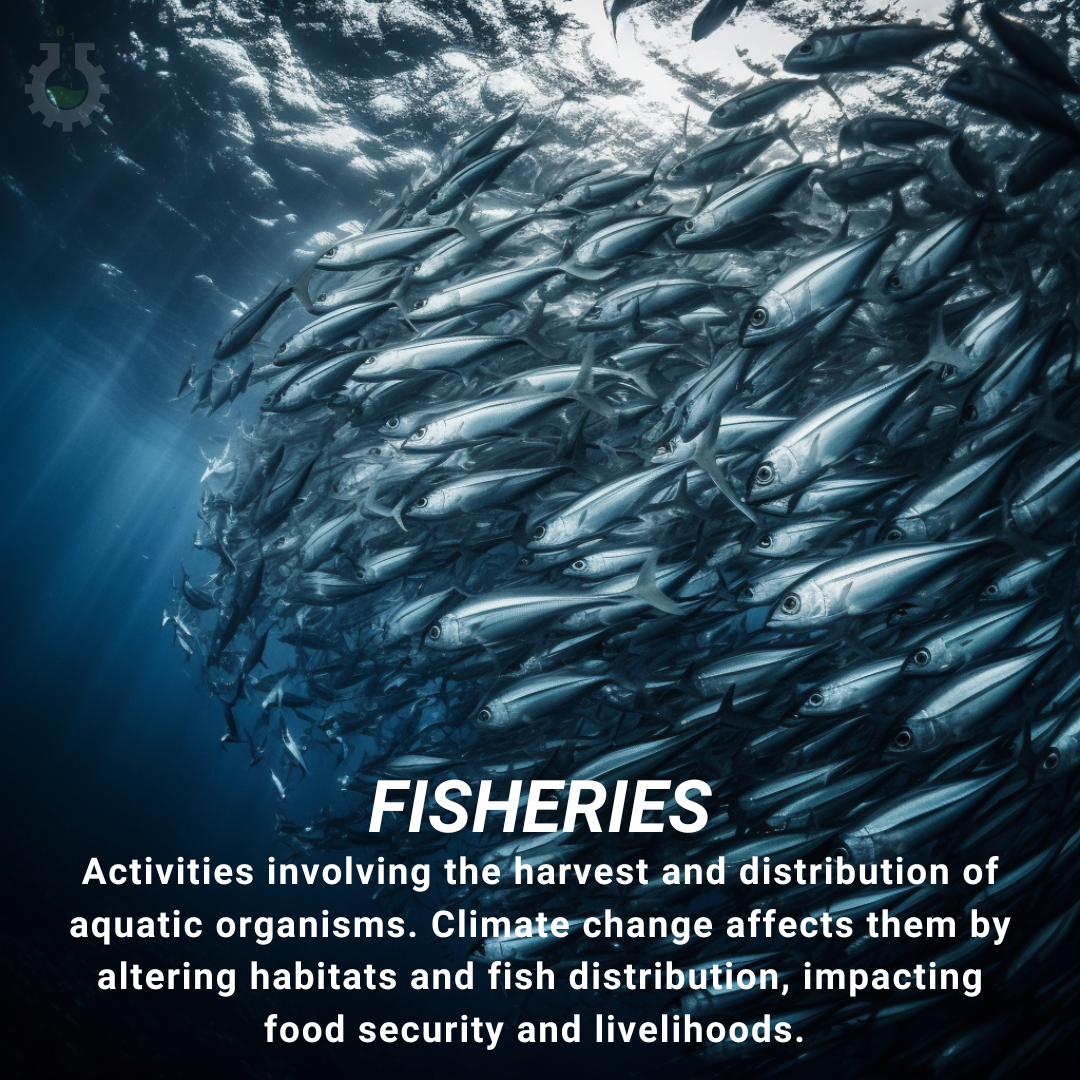October 19, 2023
Climate Change Poster Collection of the Day – Fisheries
Book a Demo
Today’s Climate Change Poster Collection focuses on Fisheries. Climate change, characterized by rising ocean temperatures and increased acidity, is having a profound impact on global fisheries and their ecosystems. This disruption to marine life is notably affecting global fish production, altering the delicate balance of our oceans.
One of the key areas of impact is the noticeable change in pelagic fish stocks, such as herring, mackerel, and capelin. These species are experiencing shifts in their distribution and migratory patterns, as well as changes in population dynamics. A marked poleward expansion has been observed, which experts attribute to the changing climate.
The increase in temperature and acidity, coupled with lower oxygen levels and salinity changes, are causing certain fish species to migrate from shallow coastal waters to cooler, deeper waters. This is a significant change, as it alters the traditional habitats and patterns of these species and disrupts the ecosystems they inhabit.
Climate change is also causing significant warming and retreating sea ice in the Baltic and Barents Seas. This has led to shifts in fish species distribution, potential local extinctions, and lower fish stock recruitment. These changes are threatening the viability of these crucial marine areas and the species that inhabit them.
In response to these issues, the ClimeFish project is currently investigating the impact of climate change on marine fish stocks, fish stock recruitments, and the introduction of non-indigenous species in various sea and ocean areas. This research is crucial to understanding the full range of impacts that climate change is having on our oceans and fisheries.
Most of the climate change research in fisheries has so far focused on the science aspect. However, the OECD has stressed the need to understand the economic and policy aspects of adapting the sector to climate change. They advise that fisheries policymakers devise adaptation strategies that consider the economic impacts of climate change. These strategies should also be flexible enough to account for the uncertainties that climate change presents.
In the report “The Economics of Adapting Fisheries to Climate Change” the uncertain impacts of climate change on fisheries, fish stocks, and coastal communities are explored. The report features insights and recommendations from global experts, highlighting the need for a comprehensive, holistic approach to adapting our fisheries to the reality of climate change.
The impacts of climate change on our fisheries and oceans are far-reaching and complex. It is crucial that we continue to study these impacts and develop effective, flexible strategies to adapt our fisheries and protect our marine ecosystems.
Discover an inspiring collection of climate change poster.



